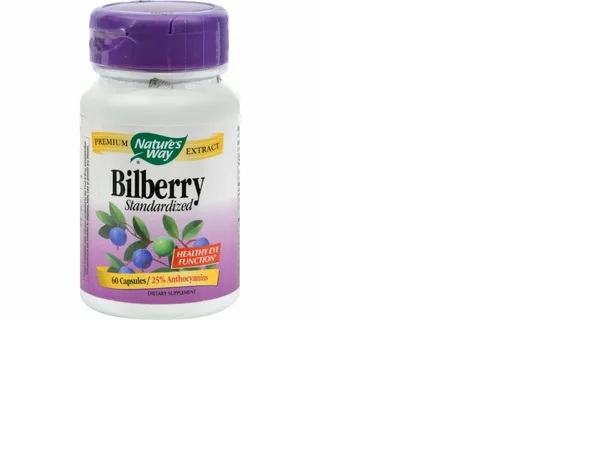Bilberry, scientifically known as Vaccinium myrtillus, is a small, dark blue berry that grows on shrubs native to Europe, North America, and parts of Asia. Renowned for its distinct flavor and potent medicinal properties, bilberry has been treasured for centuries in traditional medicine systems worldwide. In this comprehensive guide, we’ll delve into the myriad health benefits of bilberry supplements, exploring its historical uses, therapeutic properties, dosage recommendations, and safety considerations.
Understanding Bilberry
Origins and Traditional Use
Bilberry has a rich history of traditional use, dating back to ancient times. Indigenous peoples across Europe and North America prized bilberries for their culinary and medicinal properties. Traditional herbalists brewed bilberry tea to alleviate various ailments, including digestive issues, urinary tract infections, and eye conditions. Moreover, bilberries were consumed fresh or dried for their nutritional value and potential health benefits.
Active Compounds
The therapeutic effects of bilberry can be attributed to its rich composition of bioactive compounds, notably anthocyanins, flavonoids, and phenolic acids. Anthocyanins, in particular, are responsible for the deep blue-purple hue of bilberries and possess potent antioxidant properties. These compounds help neutralize harmful free radicals, reduce inflammation, and protect cells from oxidative damage, contributing to bilberry’s diverse range of health benefits.
Health Benefits of Bilberry Supplements
Eye Health
Bilberry supplements are renowned for their potential to support vision and eye health. Research suggests that the anthocyanins found in bilberries may help improve night vision, protect the retina from damage, and reduce the risk of age-related macular degeneration (AMD) and cataracts. Additionally, bilberry extracts may help alleviate symptoms of eye fatigue and strain caused by prolonged screen time or exposure to blue light.
Antioxidant Effects
Bilberries are packed with antioxidants, including anthocyanins, which help combat oxidative stress and inflammation throughout the body. By scavenging free radicals and reducing oxidative damage to cells and tissues, bilberry supplements may help lower the risk of chronic diseases such as cardiovascular disorders, cancer, and neurodegenerative conditions.
Cardiovascular Health
Regular consumption of bilberry supplements may promote heart health and reduce the risk of cardiovascular disease. The antioxidant and anti-inflammatory properties of bilberries help protect blood vessels, improve circulation, and lower blood pressure and cholesterol levels. Additionally, bilberry extracts may enhance endothelial function, reducing the risk of atherosclerosis and heart attacks.
Cognitive Function
Emerging research suggests that bilberry supplements may have beneficial effects on cognitive function and brain health. Anthocyanins and other bioactive compounds in bilberries have been shown to improve memory, concentration, and cognitive performance. Bilberry extracts may also help protect neurons from damage, reduce neuroinflammation, and support overall brain function.
Blood Sugar Control
Bilberry supplements may help regulate blood sugar levels and improve insulin sensitivity, making them beneficial for individuals with diabetes or metabolic syndrome. Anthocyanins and other compounds in bilberries help reduce glucose absorption in the intestines, increase insulin secretion, and enhance glucose uptake by cells, leading to better glycemic control.
Dosage Recommendations
Standardized Extracts
Bilberry supplements are available in various forms, including capsules, tablets, tinctures, and powders. Dosage recommendations may vary depending on the concentration of active compounds and the specific health condition being targeted. However, a typical dosage range for bilberry extract standardized to contain 25% anthocyanins is 80-160 milligrams per day. It is advisable to follow the dosage instructions provided on the product label or consult with a healthcare professional for personalized recommendations.
Safety Considerations
Generally Recognized as Safe
Bilberry supplements are generally considered safe for most individuals when taken at recommended doses. However, some people may experience mild side effects such as gastrointestinal upset or allergic reactions. It is essential to start with a low dose and monitor for any adverse reactions, discontinuing use if necessary.
Pregnancy and Breastfeeding
Pregnant and breastfeeding women should exercise caution and consult with a healthcare professional before using bilberry supplements. While bilberries are generally safe for consumption as food, the safety of concentrated bilberry supplements during pregnancy and lactation has not been well studied.
Drug Interactions
Bilberry supplements may interact with certain medications, including blood thinners, antidiabetic drugs, and medications metabolized by the liver. Individuals taking prescription medications should consult with their healthcare provider before using bilberry supplements to avoid potential interactions and adverse effects.
Conclusion:
Bilberry supplements offer a plethora of health benefits, ranging from supporting eye health and antioxidant protection to promoting cardiovascular health and cognitive function. With their rich concentration of anthocyanins and other bioactive compounds, bilberries continue to captivate the interest of researchers and health enthusiasts alike. By incorporating bilberry supplements into your daily routine and adhering to recommended dosages, you can harness the potent health-promoting properties of this remarkable berry to optimize your well-being and enhance your quality of life. As with any supplement, it is crucial to consult with a healthcare professional before starting bilberry supplementation, especially if you have any underlying health conditions or concerns. With proper use and guidance, bilberry supplements can be a valuable addition to your holistic approach to health and wellness.
- Benefits of Burdock Supplements - March 29, 2024
- Benefits of Buchu Supplements - March 29, 2024
- Benefits of Bilberry Supplements - March 21, 2024


